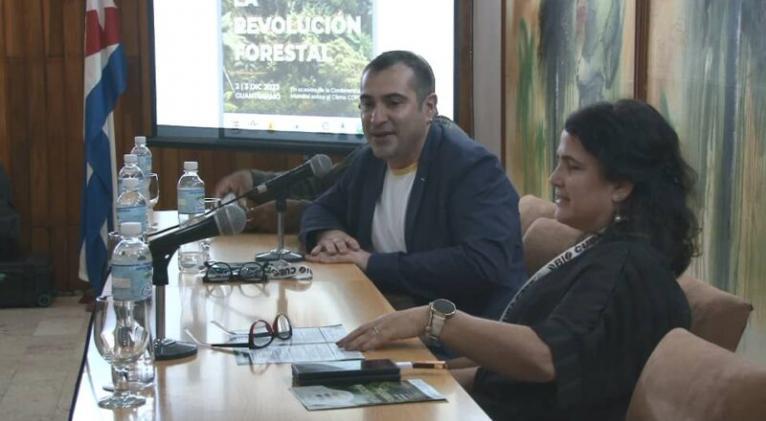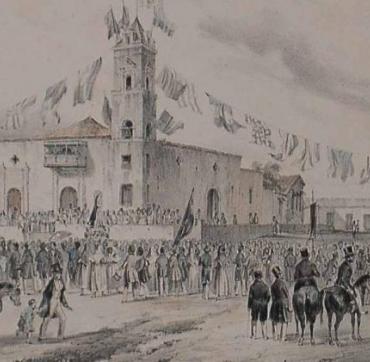Coffee Growing, Science and Culture at the BIOCUBA 2023 Fair
especiales

A little cup of coffee in the morning, even if it’s just to "wet our lips", can be fuel, ritual and even medicine in the daily life of this island. It was also the pretext to bring together scientists, farmers, artists, businessmen in Guantanamo, the easternmost province of Cuba, during the BioCuba 2023 Fair, which is being held for the second time, within the framework of the Chocolate with Coffee Festival.
Economic and social development, together with the strategy to care for the environment and confront climate change, is a fundamental point of the event, which also focuses on topics such as reforestation, circular economy, excellence in the supply chain of coffee, cocoa, and organic products.
During the opening, which took place in the Plaza de la Revolución Mariana Grajales, Waldo Mendoza, musician and Director of the Chocolate with Coffee Festival, assured that the possibility of reaching more peasants and farmers through this Fair makes him feel satisfied and happy.
The opening of the event was attended by His Excellency Roberto Vellano, Ambassador of Italy in Cuba, directors of the Lavazza Foundation who have stimulated foreign investment in the country, as well as researchers from the Center for Genetic Engineering and Biotechnology and the Agroforestry Group of Cuba. who work to stimulate organic productions.
Conferences, round tables, exchanges between businessmen in various places in the city, including the University of Guantánamo and the University of Medical Sciences, integrate a program that approached urgent issues for Cuban society such as the future of young people in the mountains, and the role of women in the development of those communities.
Impact of Climate Change
Wilmer Sánchez Carbonell is a coffee producer from the Segundo Frente Oriental and has verified how climate change impacts the increase in temperatures, which affects the quality and growth cycle of the grain, decreases production due to the alteration of rain patterns , causes habitat loss, increases pests and diseases, and erodes the soil.
Marta Ayala, Director of the Center for Genetic Engineering and Biotechnology, commented on a study in which they proposed isolating the microbiota present in coffee plantations: “In Contramaestre we already did that process and what we would like is for us to have our authentically Cuban yeast and that a cup of coffee as special as possible,” he explained.
The Agroforestry Group, the Lavazza Foundation, the BioCuba Caffé company and the Agency for Cultural and Economic Exchange with Cuba, chaired by the Italian friend Michele Curto, join forces today in projects aimed at achieving resilient coffee growing in Cuba, which cover the provinces of Granma, Santiago de Cuba, and Guantánamo.
Coffee Culture
"French-Haitians, French, and Haitians come to Santiago de Cuba because they see the similar conditions they had for coffee in that Caribbean country," said Omar López, Curator of the city of Santiago de Cuba and a scholar of coffee tradition in Cuba.
The researcher recalled that coffee growing came to us through the Haitian Revolution and highlighted that the ruins of these Santiago coffee plantations are today a World Heritage Site declared by UNESCO.
Translated by Amilkal Labañino / CubaSí Translation Staff














Add new comment